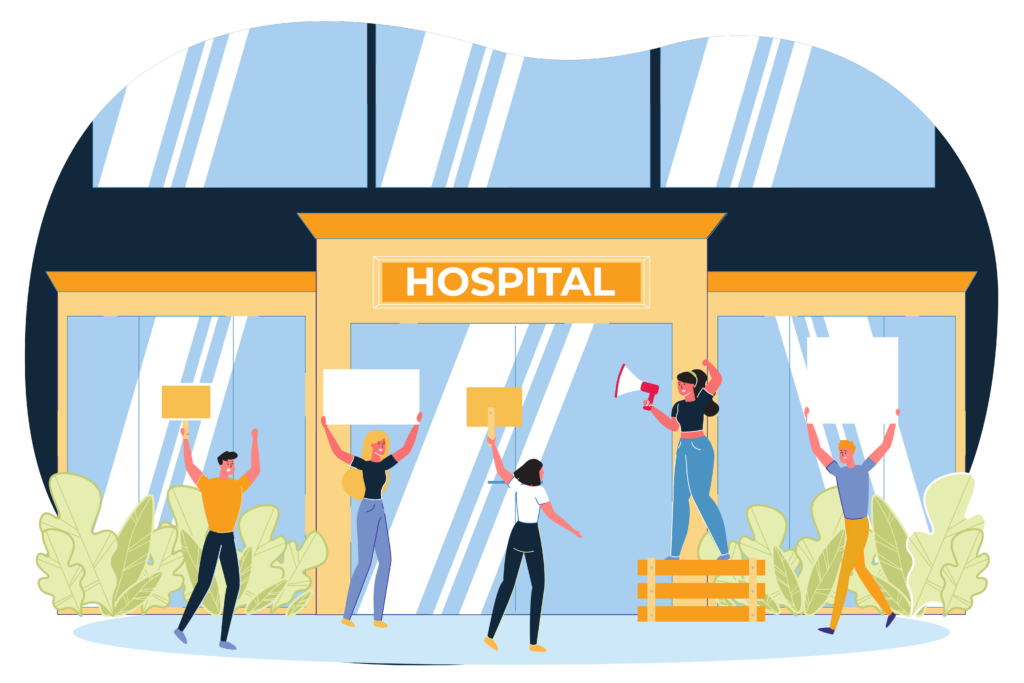
Feedback cuts through the noise to reveal the truths influencing healthcare today. Leveraging our research expertise, we bring hospitals and healthcare professionals crucial insights for mastering healthcare’s complexities. Here, we spotlight the top three misconceptions we’re currently seeing.
Top 3 Misconceptions We’re Seeing in Healthcare:
1) “Our workforce burnout issues seem to come out of thin air ” or, “This satisfaction number keeps going down but we don’t / can’t know why.”
In August of 2020 we saw clear behavioral signs in nurse discussion of the massive burnout and management issues; in September of 2022 we saw pharmacists and pharmacy techs look over the fence at nurses and talk about burnout – we predicted a strike, starting in Walgreens then a year later it happened, entirely planned out in the open on publicly listenable channels for over a year. (Bonus example: the DoorDash, Uber, Lyft strike on Valentine’s Day was also planned far in advanced in open discussions… totally knowable you’re listening.) For example, there’s a MASSIVE subreddit just on radiology where everyone from techs to nurses ask detailed questions – that’s radically different than what you’ll hear on Glassdoor or your cafeteria suggestion box.
2) “You know your patient experience / reputation because you read all the messages you get and you do annual surveys.”
This is connected to a really common issue we see: that because hospitals pay attention to their owned channels for messages, comments, and reviews that it’s representative of the patient experience for good or ill. Not only are there far more places for discussion, it’s often far richer. Patients aren’t just leaving reviews, they’re detailing their whole journey from diagnosis to recovery with peers – and it’s often not about you or your brand. As we often lament on reputation: your Net Promoter Score (ah, the dreaded NPS) is only half of the picture; you should want to know if someone DOES recommend you, not just whether they WOULD.
3) “Access to care issues are something marketing is told about, not something we can do anything about.”
Building off patient experience, access to care remains a significant challenge, particularly for high out-of-pocket patients, high complexity patients, and those on state health plans. Additionally, insurance complexities and lack of transparency often limit the utilization of medical resources. Simplifying insurance processes and improving access to care are key areas for improvement. Reporting on this to the C-Suite gives them better perspective of what’s going on (from broader, more public sources) and reporting out to multiple departments internally gives everyone perspective and a chance to communicate.
In the ever-evolving landscape of healthcare, staying informed and agile is paramount. The misconceptions we’ve highlighted today serve as a reminder that what we think we know can sometimes lead us astray. By embracing a culture of continuous learning and openness to new insights, we can not only anticipate changes but also become catalysts for innovation and improvement in patient and staff experiences.
Contact Us to explore the critical role of behavioral science in healthcare and to discover actionable strategies for meaningful integration into your organization.
